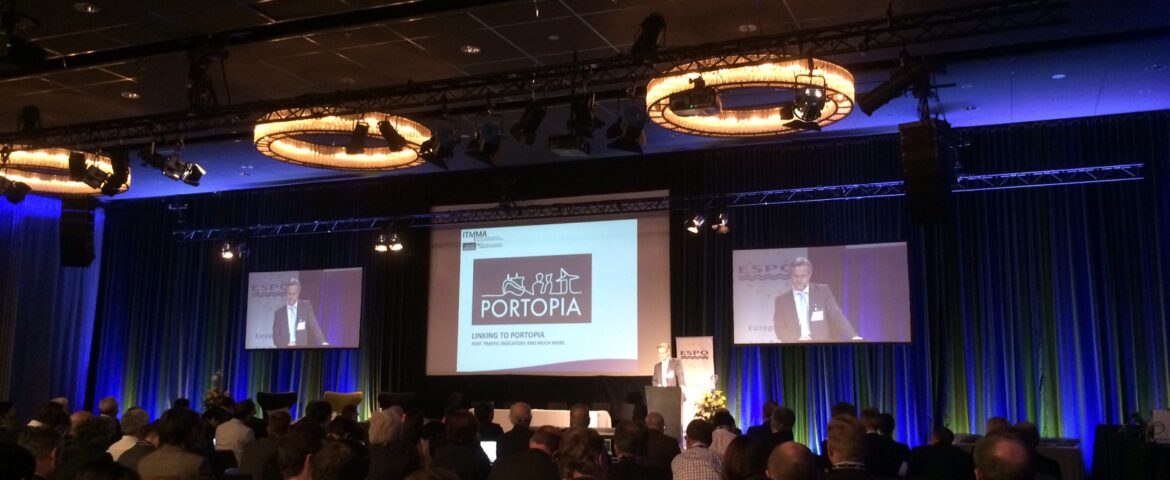Theo Notteboom, PortEconomics co-director, provided an outlook of trends in the European port industry to port authorities and port sector experts that gathered in Sweden during the ESPO 2014 Conference.
Theo presented the signs of recovery, although the traffic volumes are below those of 2008. There is a recovery in dry bulk while liquid bulk is declining, whereas Container business is on the rise with 27%. The LNG market for bunkering is a very important and booming market that will play a significant role in the future. LNG for bunkering is expected to increase to 20-30% between 2025-2030. The steel industry is under a moderate growth of 2%. There is a ‘war’ regarding distribution networks as a new wave of them is underway (especially for container transport), lthough there are a lot to do especially for the optimization of hinterland accessibility. Container shipping alliances distribute the flows, and this is something that creates opportunities for some ports.
The EU port traffic is still below the 2008 volumes but is recovering.. In 2013 we observed zero growth, whereas in 2014 the growth of the European port market is expected to be 1.8-2%. Container market are estimated to growth by 3%, while liquid bulk will decrease by 2,5%-3%. Finally the other cargoes are expected to grow by 3-6%. The outcome is that the EU ports are still fragmented while they are facing commonalities challenges.
You might download and read Theo’s Notteboom “Outlook for European Ports” as presented at ESPO 2014 via PortEconomics.
PortEconomics co-directors and several members of the PortEconomics team are in Gothenburg, Sweden, to attend the European Sea Ports Organisation 2014 Conference. While they shape discussion of the conference they provide to the readers of PortEconomic everything that they would like to know via the “PortEconomics ESPO 2014 diary”.












